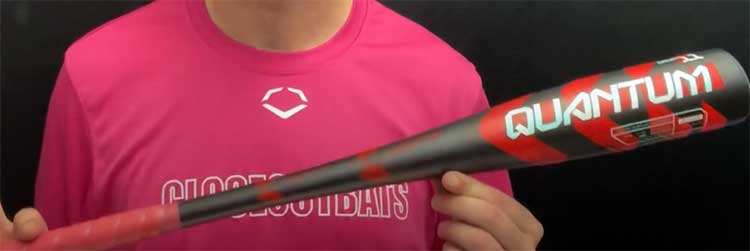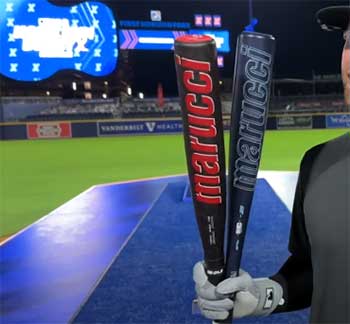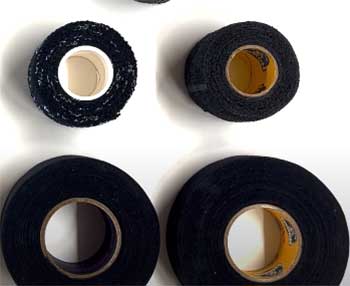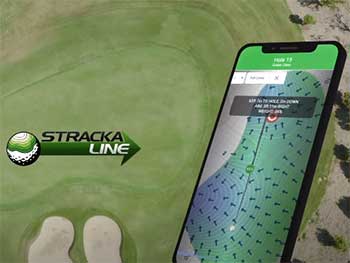If you’re thinking about buying the Louisville Slugger Nexus Fastpitch Bat, let me stop you right there—because there’s more you need to know before making that purchase. Trust me, I’ve been through this journey, and I’m here to share my experience with you.
While the Louisville Slugger brand has a storied reputation, the Nexus model, unfortunately, may not live up to what you’re expecting, especially for the price.
My Experience Using The Louisville Slugger Nexus

My experience with the Louisville Slugger Nexus was, unfortunately, not a positive one. When I bought the bat for my daughter, I had high hopes. The lightweight feel and large sweet spot seemed like a perfect fit for her.
However, it didn’t take long for the issues to start showing. After just a few practices, the bat began to lose its initial pop. The performance, which seemed promising at first, quickly degraded, and my daughter started to feel discouraged using it.
The vibration control was another disappointment. Despite the XCT connection technology, there was still a noticeable sting when contact wasn’t perfect. This made her hesitant to swing confidently, as she began to associate hitting with discomfort.
Moreover, the bat developed a rattle after only a few weeks, which was a major red flag for me in terms of quality and durability.
In the end, the Nexus didn’t live up to our expectations, and I found myself regretting the purchase. For the price, I expected much more in terms of performance and longevity. I ended up looking for alternatives from other brands that could offer a more consistent and durable experience.
Pros of The Louisville Slugger Nexus

Let me start by being fair. There are a few positives worth mentioning when it comes to the Louisville Slugger Nexus. There’s a reason why I (and probably you) had some high expectations initially.
- Lightweight Construction: This bat is noticeably lightweight, which makes it easier for younger players or those still learning to improve their swing speed. It helps with the mechanics of swinging, especially if you’re in that age group where muscle strength is still developing.
- Large Sweet Spot: The Nexus comes with a large sweet spot that could potentially make it easier for players to connect the ball with maximum power. During the initial use, the bat gives you a sense of accomplishment when you do make good contact.
- Balanced Swing Weight: The balance is decent. There is some weight toward the end, which can help produce more power, especially if you’re teaching your kid to really drive the ball.
These features seem good on paper, and they’re likely what you’ve read about already. However, these highlights don’t tell the whole story.
Cons of The Louisville Slugger Nexus
The truth is, even with the features listed above, the Louisville Slugger Nexus doesn’t quite hit the mark—especially when compared to other bats in the same price range. There are several issues that I experienced, and that other users have reported as well.
- Durability Concerns: After only a few uses, the first major red flag was the durability. My daughter’s Nexus bat started showing signs of wear, even though she had barely used it in a few practices. I wasn’t alone in this experience either. Several other buyers complained of rattles after just 50 hits, with some parts of the bat even starting to fall apart. When you pay for a premium fastpitch bat, you expect it to last more than just one season—or even a few games.
- Vibration Control Lacking: Despite the XCT connection that supposedly reduces vibration, the Nexus still produced noticeable stinging feedback when making contact with the ball—especially when the hit wasn’t quite at the sweet spot. This became frustrating for my daughter, as it made her hesitant at the plate, not wanting to deal with the sting.
- Loss of Pop: Initially, the bat showed some promise with its ‘pop’—the lively response you get when you make good contact with the ball. However, after a relatively short period, the bat started losing its pop. The performance degraded fairly quickly, which is just unacceptable given the price.
- Questionable Quality Control: I received my bat, and much to my surprise, it showed signs of previous use. It had marks and even some dirt in the grip. It was a disappointment from the start. Quality control is key when buying a premium product, and this kind of oversight shouldn’t happen.
- Not Ideal for Strong Hitters: I also wouldn’t recommend this bat for players who already have a solid swing. If your kid is hitting hard and making good contact consistently, the Nexus just doesn’t hold up. You’re better off looking at bats that offer greater durability and power, such as those by Easton or DeMarini.
Louisville Slugger Nexus Vs. Other Brands
To help you better understand how the Louisville Slugger Nexus stacks up, let’s compare it to some of the other popular options on the market, including the DeMarini Spryte Fastpitch Softball Bat, the Easton Quantum Bat, and the Marucci Fastpitch Bat.
Each of these bats has something unique to offer, and it helps to see how they compare side by side.
- Louisville Slugger Nexus Vs. DeMarini Spryte Fastpitch Softball Bat

The DeMarini Spryte Fastpitch Softball Bat is a solid competitor, especially for younger players or those new to the game. Compared to the Nexus, the DeMarini Spryte has a more forgiving swing and significantly better vibration control.
The Spryte features a two-piece composite construction that effectively dampens vibration, ensuring a more comfortable experience at the plate.
In terms of durability, the Spryte outshines the Nexus. While the Nexus lost its pop after just a few practices, the Spryte maintains its lively feel over time. The bat also boasts a balanced swing weight, making it easier for younger players to control their swings without sacrificing power. If you’re choosing between the two, the DeMarini Spryte is a far better investment for consistency and player confidence.
- Louisville Slugger Nexus Vs. Easton Quantum Bat

The Easton Quantum Bat is another alternative that offers notable advantages over the Louisville Slugger Nexus. The Quantum has an alloy barrel, which is known for its durability and consistent pop.
Unlike the Nexus, which started to lose its power after only a short period, the Quantum delivers a steady performance throughout the season. This consistency makes it a more reliable option for players who want a bat that will last.
Another advantage of the Easton Quantum is its affordability. It provides great value for the price, offering solid performance without breaking the bank. The Nexus, on the other hand, is more expensive but doesn’t justify the cost with its inconsistent performance and durability issues.
The Quantum’s one-piece alloy construction also contributes to a stiffer feel, which is ideal for power hitters who want immediate feedback from their swings.
- Louisville Slugger Nexus Vs. Marucci Fastpitch Bat

Marucci is known for producing high-quality bats, and their Fastpitch line is no exception.
When compared to the Nexus, the Marucci Fastpitch Bat stands out for its excellent craftsmanship and attention to detail.
The Marucci bat features a multi-wall composite design, which not only enhances the sweet spot but also maintains its pop over a longer period.
In contrast, the Nexus’s performance deteriorated quickly, which was a major letdown.
The Marucci bat also excels in terms of vibration control.
Unlike the Nexus, which often leaves players with an uncomfortable sting on mishits, the Marucci bat incorporates an anti-vibration knob that effectively minimizes negative feedback.
This feature alone makes it a much more comfortable bat to use, especially for younger players who are still developing their confidence at the plate.
In terms of swing weight, the Marucci Fastpitch Bat is well-balanced, much like the Nexus, but with better weight distribution that allows for greater control and power. Overall, the Marucci bat is a superior choice if you’re looking for a reliable, durable bat that can help young players improve their game without the frustration of diminishing performance.
Maintenance Tips For The Louisville Slugger Nexus
If you still decide to go with the Louisville Slugger Nexus, taking good care of it might help prolong its life and performance. Here are a few tips to consider:
- Rotate the Bat Regularly: When using a composite bat like the Nexus, make sure you rotate it a quarter turn after every hit. This helps distribute the impact evenly around the barrel, which might extend the bat’s longevity.
- Avoid Cold Weather: Composite bats generally don’t fare well in cold temperatures. Avoid using the Nexus when it’s below 60°F, as this could lead to cracking and other damage. Cold weather makes the composite material more prone to breakage.
- Break It In Properly: Composite bats need to be broken in to ensure consistent performance. Use soft-toss or tee drills with around 150 hits, making sure you hit the ball all over the barrel to break in the bat evenly.
- Store It Indoors: Make sure you store the bat at room temperature when not in use. Leaving it in a hot car or a cold garage could negatively impact the composite material.
Frequently Asked Questions (FAQ)
To break in a Louisville Slugger Xeno bat, you should use a soft-toss or tee drill. Take around 150-200 swings, making sure to rotate the bat a quarter turn after each hit to ensure that the entire barrel is evenly broken in. This will help improve the pop and overall performance.
Louisville Slugger and DeMarini are both owned by Wilson Sporting Goods, but they operate as separate brands. They each have their own technology and design philosophies, targeting slightly different segments of the market.
Louisville Slugger bats are still being produced, but the company was acquired by Wilson Sporting Goods in 2015. Since then, Wilson has continued to manufacture Louisville Slugger products, focusing on improving their performance and quality.
Most Louisville Slugger bats are manufactured in China, particularly the composite models. However, their premium wood bats are still made in the United States, maintaining the brand’s historic roots in American baseball.
The Verdict On The Louisville Slugger Nexus
In summary, the Louisville Slugger Nexus Fastpitch Bat has some attractive features for beginners, but it simply doesn’t live up to expectations in terms of durability, quality, and long-term performance.
The lightweight build and large sweet spot might be beneficial for younger players who are just starting, but for anyone looking for a serious, long-lasting investment, there are better options out there.
I found the Nexus to be underwhelming and even frustrating due to its rapid loss of pop and overall quality issues. If you’re considering spending your money on a new bat, I would strongly suggest looking into other brands like Easton or DeMarini—brands that have a proven track record for delivering quality, durability, and performance on the field.
Save yourself the disappointment and invest in a bat that won’t leave you questioning your choice a few months down the road. Trust me, your young player deserves better.

